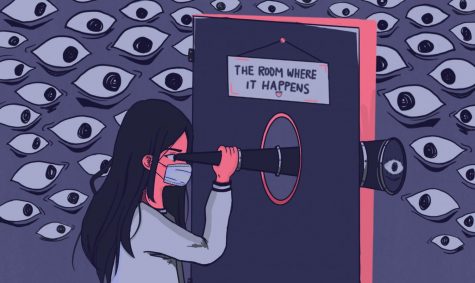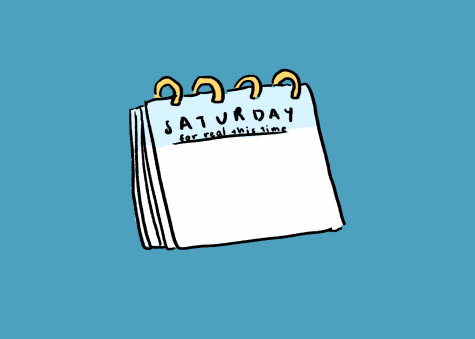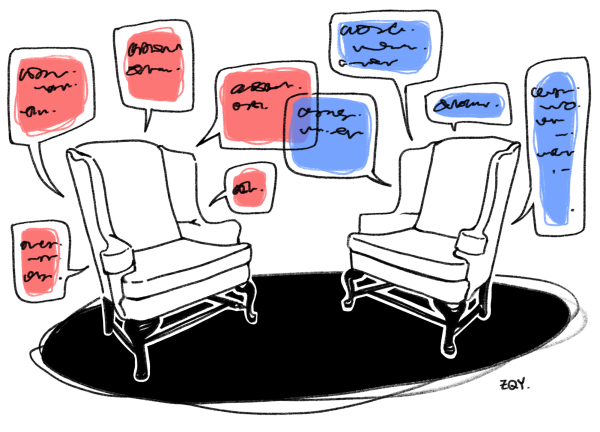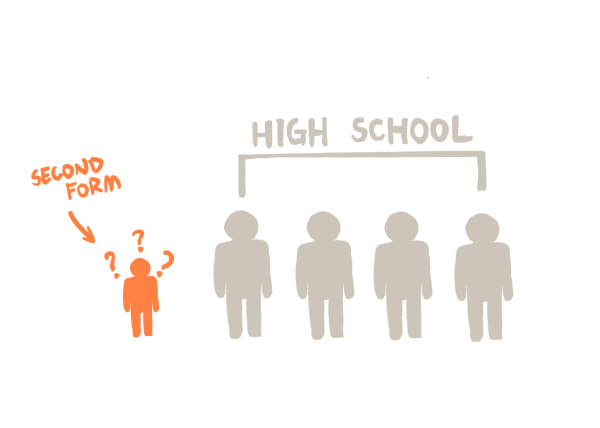To Snitch or Not to Snitch: On Cheating and Trust
have cheated at least once in the past year. This shocking number suggests an increased pressure to get good grades and enter top universities. Especially in a school as competitive as Groton, most students feel the need to earn the best grades possible as they are given high expectations by their parents and teachers.
With such strictness in the Honor Code, a cheating problem wouldn’t seem to be of any size worth noting for Groton. Groton’s small community is only sustainable if trust is kept. Despite this, I don’t think that we should report students who cheat, because there are two kinds of trust: trust that people won’t cheat, and trust that your friends won’t tell on you.
One form of trust is, of course, academic honesty. As the Honor Code states, “We, the students of Groton School, feel that individual students must take full responsibility for their integrity. For these reasons, we do not tolerate any lying or cheating, and uphold honor and integrity.” Grotonians value academic honesty because any form of cheating creates distrust throughout the Groton community, as it involves the exploitation of others.
Another form of trust, though, is faithfulness to friends. In a tight-knit community like Groton, strong friendships are built on the foundation of loyalty. We should be trying to support our friends rather than to betray them. It is this trust that reporting cheaters breaks, and we ought not to abandon this form of trust in a single-minded pursuit of academic honesty.
Reporting cheaters to teachers is seen by many as detrimental to the second form of trust. In a student survey with 96 respondents, 62 percent of students were found to believe that “snitching” (telling an authority figure when a student is observed cheating) was a bad idea. Of these students, most believed that snitching is wrong because it would be social suicide. More significantly, the perception is that tattle-telling could ruin the life of a decent, if not entirely academically honest, student.
None of this is to say that cheating is a good thing, or that we shouldn’t endeavor to stop it. It is certainly unfair. From my perspective, telling adults about cheating isn’t the only way to prevent cheating within our school. It would do more good to tell your friend directly to stop cheating than to tell on them. Telling a teacher should be a last resort, not a first one. More good can be done and more lasting moral change made by honest, face-to-face conversation than by seeking to get others punished.
From my perspective, I do not have the right to tell on my peers. It is their decision to cheat, and their choices that guide their life. Letting fate decide for them is better than getting involved with a situation that may destroy a friendship or a community.










